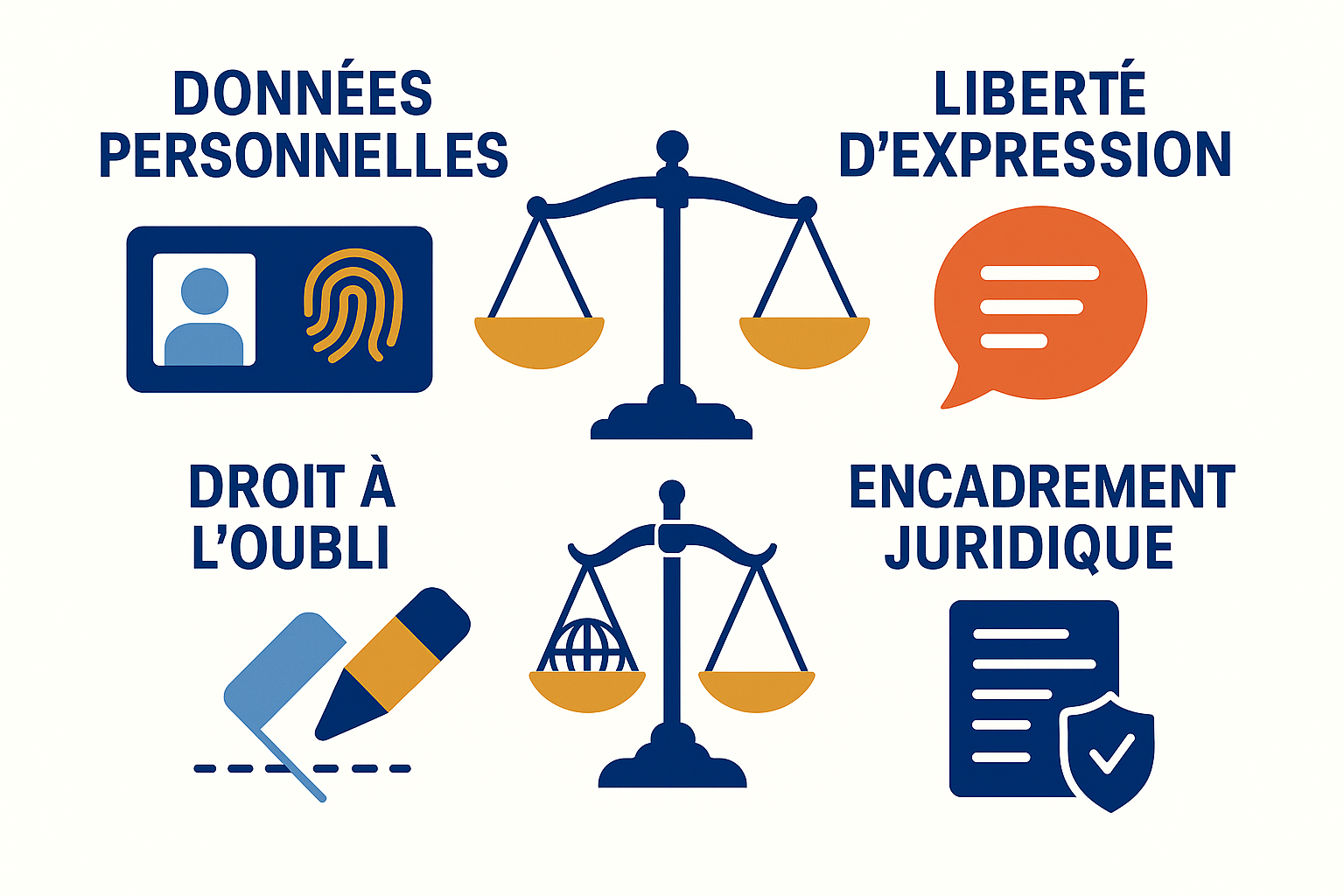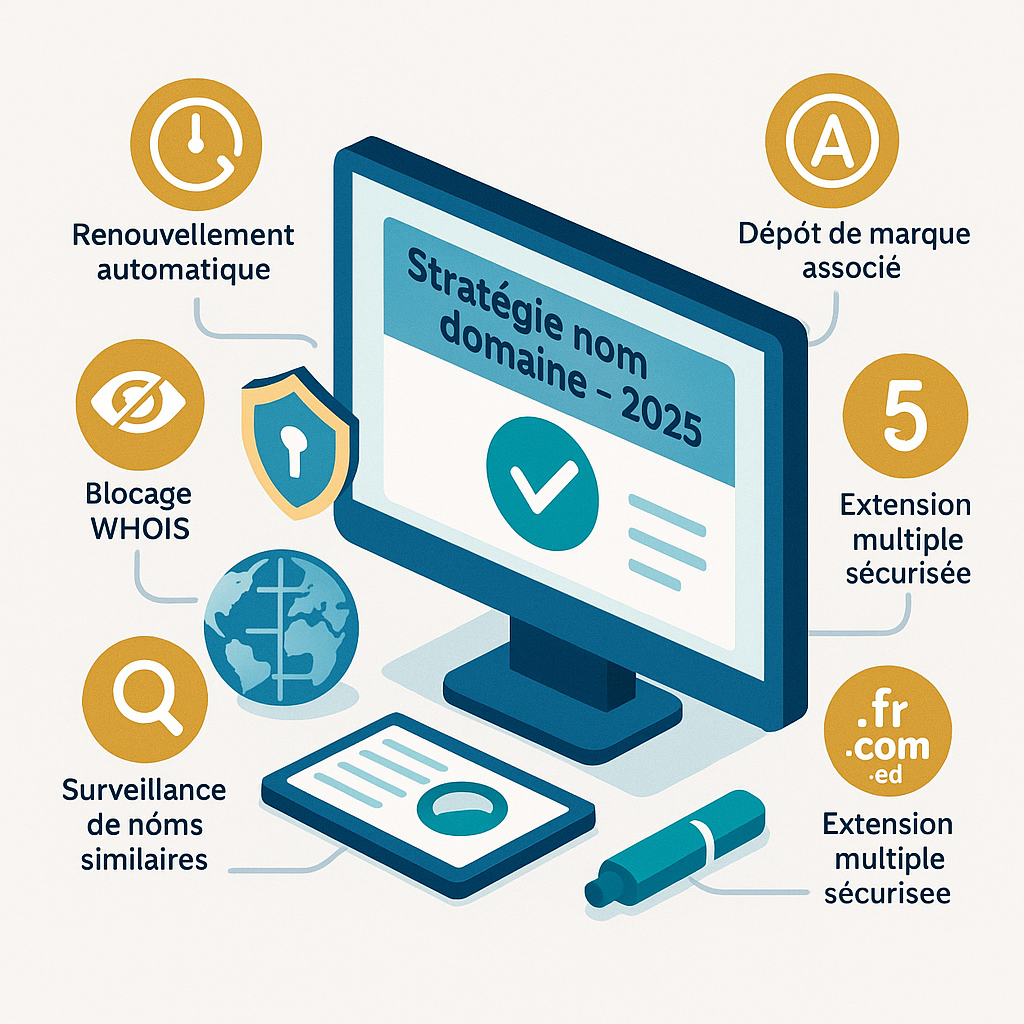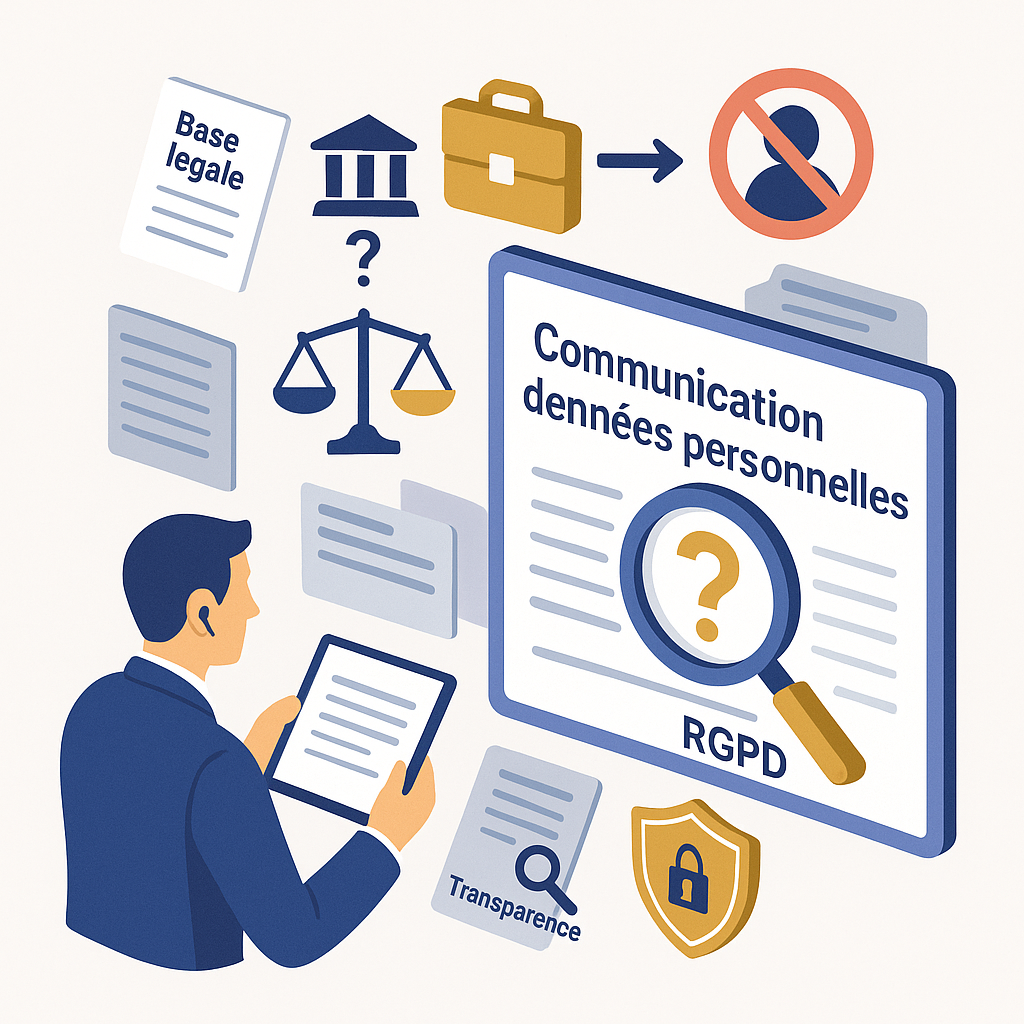Personal data protection has become a crucial issue in the digital age, where freedom of expression is also essential to ensure open dialogue within society. However, this duality raises a fundamental question: does the RGPD, which aims to regulate the processing of personal data, limit this fundamental right?
Relevant articles, such asArticle 85 of the GDPR, require member states to ensure a balance between these two rights by adopting derogations and exemptions. Thus, the challenge lies in finding a harmonious reconciliation between data protection and freedom of expression, particularly in the context of the freedom to inform through the media and journalism.
This debate is based on considerations that are not limited to legal principles, but also extend to societal concerns. Far from being an isolated issue, the interplay between data regulation and individual expression merits close attention. By analyzing the issues involved, we will consider the frame of reference that regulates this coexistence, the limits imposed on individuals, and the impact of the RGPD on journalists and the media.
If you would like to hire a RGPD lawyer, contact me!
1. Reconciling freedom of expression and data protection: how does it work?
Reconciling freedom of expression with the protection of personal data is a major challenge in the digital age. Personal data must be protected, but it is also essential to ensure that freedom of expression is not hindered.Article 85 of the RGPD provides a legal framework, stipulating that member states must adapt their legislation to strike this balance. This involves taking into account journalistic, academic, artistic or literary contexts in which data can be published without infringing the fundamental rights of others.
It is important to note that the RGPD provides a series of facilitating measures and derogations, but these provisions must not lead to an excessive restriction of freedom of expression. Indeed, to achieve this reconciliation, several elements must be considered:
- The purposes for which the data is processed, which must justify the balance between the rights at stake.
- Respect for individual privacy, which must be weighed against the importance of communicating information of public interest.
- The limits imposed by French law, notably througharticle 80 of the 1978 law, which offers exemptions for processing for journalistic purposes.
This need for reconciliation highlights the flexibility required in applying the RGPD. The latter, in conjunction with freedom of expression, reflects the complexity of the coexistence between data protection requirements and the need to inform the public. The road ahead is thus marked out by the search for a regulation capable of preserving both the protection of personal data and the right to information.
This dynamic calls for reflection on the practical implications of these principles within society, particularly with regard to the handling of data by journalists and the media. How can these professionals navigate this complex landscape? We'll explore this question in the next section.
2. What are the limits of the RGPD concerning processing carried out by private individuals?
In the context of personal data protection, it is essential to understand the limits of the RGPD regarding processing carried out by private individuals. Fundamental rights must not be compromised, but situations involving informal or non-profit processing require particular attention.
Indeed, the RGPD imposes clear obligations, but it also leaves room for maneuver in cases where freedom of expression and the public interest are at stake. For example,Article 85 of the RGPD allows Member States to make exceptions for processing related to information of public interest, while respecting the privacy of data subjects.
Limits imposed by the RGPD include:
- The need to obtain the explicit consent of individuals before processing their personal data.
- Transparency obligations, which oblige individuals to inform data subjects about the use of their data.
- The right to erasure, which enables any individual to request the deletion of his or her personal data under certain conditions.
So when individuals wish to share information about others, particularly via social networks or other public platforms, they come up against real legal constraints. Possible remedies can be considered, but the question of freedom of expression must always be understood in the context of respect for data protection laws.
In this context, it is crucial to navigate carefully between the desire to express oneself and the obligation to respect the privacy of others. In this way, data protection becomes not only a legal responsibility, but also an ethical requirement for individuals.
In sum, the complexity of the RGPD's limits highlights the importance of a balanced regulation that respects both freedom of expression and data protection requirements. This examination of the limits when it comes to data processing by individuals sets the scene for a deeper reflection on the specificities applicable to journalists and the media.
3. How does the RGPD apply to journalists and the media in terms of freedom of expression?
The question of how the RGPD applies to journalists and the media raises fundamental issues, as these players play a key role in freedom of expression and the dissemination of information. The importance of journalistic work is recognized, but this does not mean that journalists escape the obligations laid down by the RGPD. Indeed, this regulation aims to establish general principles for the protection of personal data, while incorporating specific derogations for processing carried out for journalistic purposes.
One of the key articles in this regard isArticle 80 of the Data Protection Act, which allows the application of the RGPD to be adapted for certain data processing carried out in the context of journalistic activity. This means that journalists can process personal data under certain conditions, while not compromising the privacy of the data subjects.
It proves crucial to understand the following regarding the application of the RGPD to the media:
- Journalists benefit from a degree of flexibility when it comes to consent, where the public interest and the legitimacy of information can justify data processing without the explicit consent of the data subject.
- On the other hand, the principle of data minimization must be respected, which means that only data that is strictly necessary for the information mission must be collected and processed.
- The rights of data subjects, such as the right to erasure or the right to object, also apply here, except for data processing carried out strictly for journalistic purposes.
Generally speaking, the lack of clarity over what constitutes "processing for journalistic purposes" widens the debate. The case law of the Court of Justice of the European Union (CJEU) has regularly addressed this issue, but there remains significant room for interpretation regarding definitions. As a result, the media must exercise caution when collecting and using personal data, in order to avoid potential litigation.
Furthermore, the applicable legal framework varies from one member state to another, further complicating the situation. In France, for example, processing for journalistic purposes may be excluded from certain obligations imposed by the RGPD, but it is essential to remain vigilant in the face of individuals' fundamental rights. This requires a balanced approach, whereinformation of public interest can be reconciled with data protection, but without ever omitting people's right to have their data respected.
This complexity in the relationship between RGPD, freedom of expression and the processing of personal data by journalists highlights the need for ongoing dialogue between these different bodies. The next step will be to examine how these principles translate into practice.




